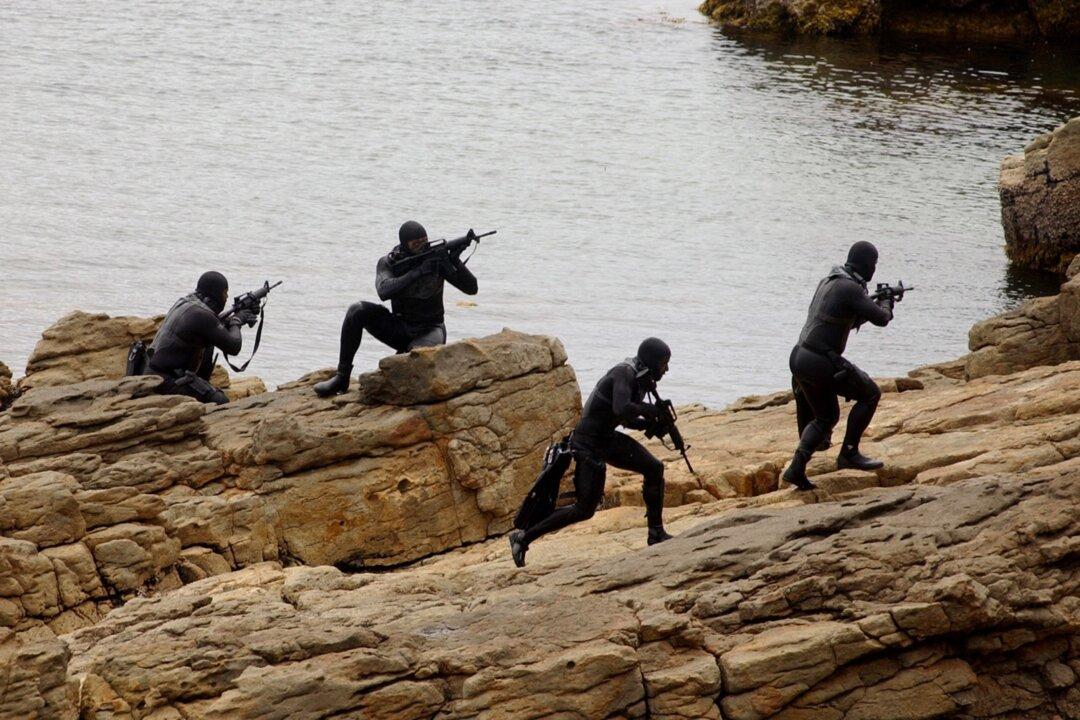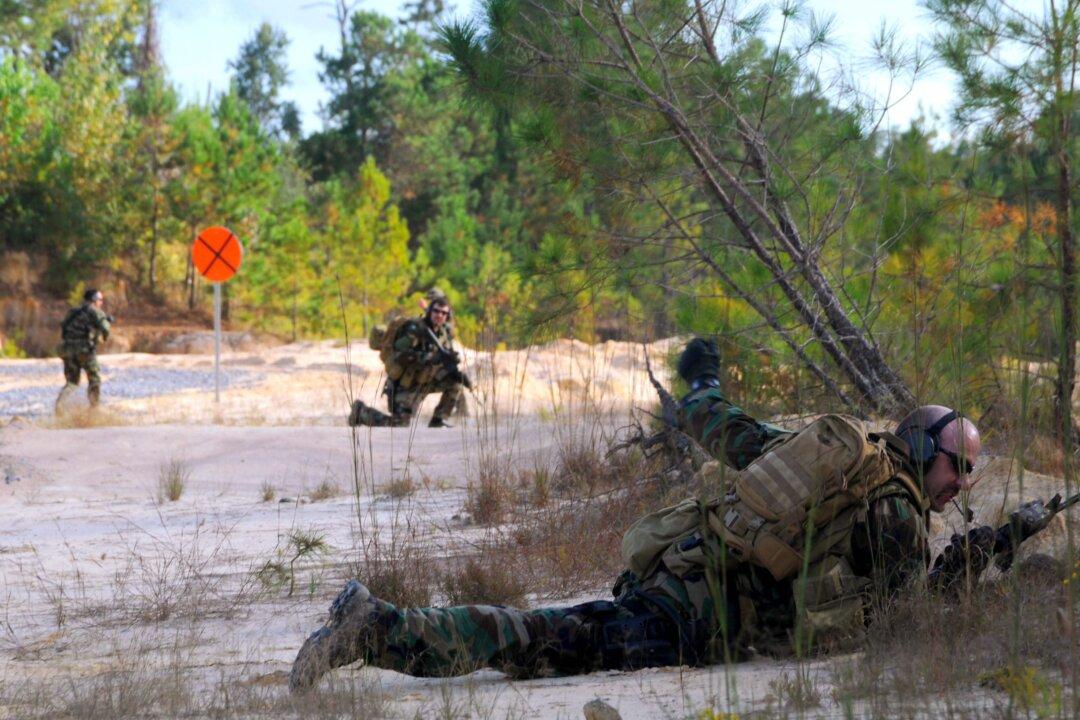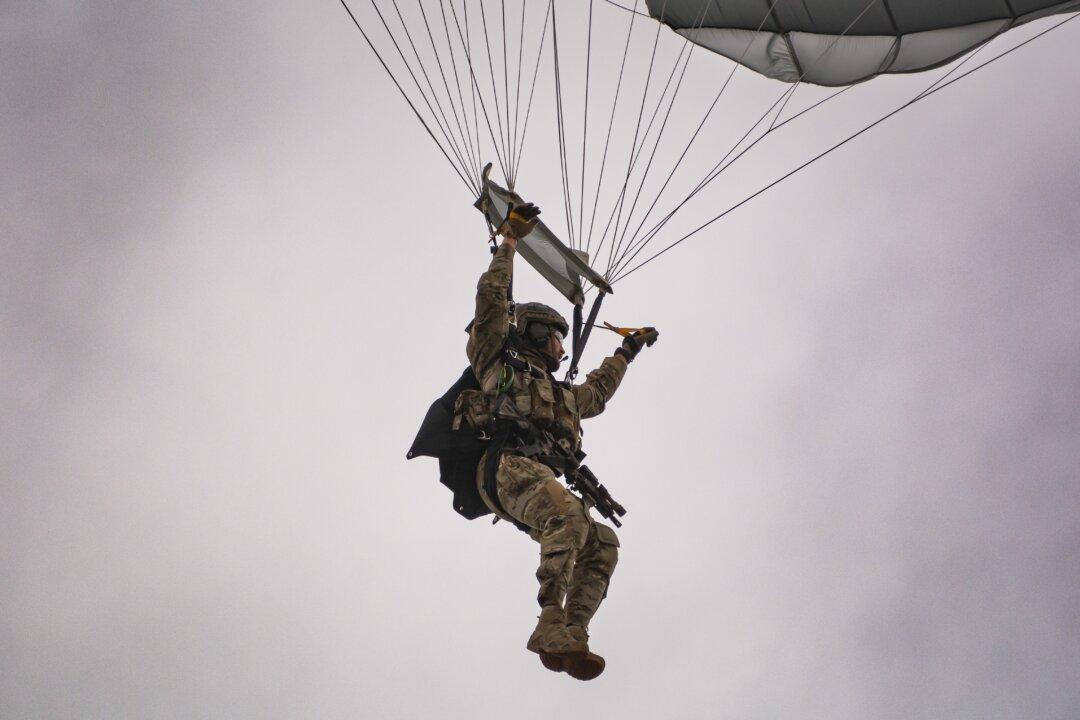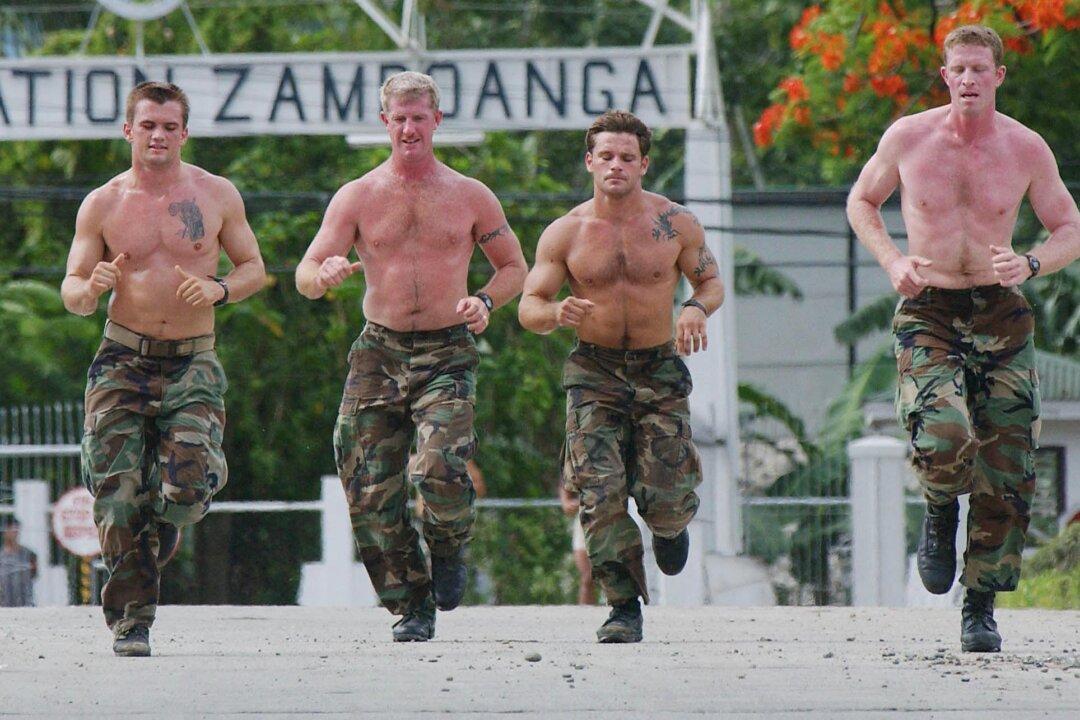We were just getting our equipment sorted when our teammate on security duty told us in a calm, controlled voice, “guys, put your hands up.”
As a SEAL, you never hear anybody telling you to put your hands up, so I immediately knew something was up. We all turned to see what he was talking about and quickly noticed more than a dozen armed gunmen standing behind him with AK-47s pointed in our direction. They looked nervous and unsure of themselves, which can sometimes be a recipe for disaster. We tried to diffuse the situation by standing completely still and raising our hands over our heads while they quickly scrambled to surround us.

Our team only had one weapon at the ready and it was already trained on the gunmen. The other three of us could have dropped our shovels and grabbed our own weapons too, but they would have slaughtered us where we stood. We could have made a break for the water, but they would have easily killed us there as well. We ended up making the right decision by just standing there with our hands in the air.
As they got closer, you could see the fear in their eyes. They were all young and apparently untrained locals, each of whom had a look of nervous panic on their faces. I could see that they all had their fingers on the trigger of their assault rifles too, which is not a good combination.
What followed was several tense minutes of heated, very loud broken communication with the leader of the gunmen screaming at us in a language none of us understood. He kept motioning to the ground and was trying to get us all to lay down. We tried to communicate to him in English that we were Americans and that we didn’t understand what he was saying. At some point, this seemed to register with him, which is when he turned and barked an order at one of his men. That gunman nodded his head and sped off into the night. We just stood there waiting at gunpoint until daylight.
Several hours passed before the gunman burst back onto the scene with another man in tow. The second man spoke a bit of broken English and told us that he was a local merchant who could help translate the conversation. He said that the locals were very angry that we were trespassing on their land and that they wanted us to lay face down on the ground so they could shoot us in the back. He explained very matter of factly that this was how they dealt with trespassers.
We informed him that we weren’t about to just lay down and allow ourselves to be shot to death, which initiated a somewhat surprisingly civil discussion that went back and forth for a while. The group leader’s temper eventually calmed down as we negotiated, helping to lower the tension level considerably. The gunmen continued to keep their AK-47s aimed at our heads and chests, however, providing a not-so-subtle reminder of just how precarious our situation truly was.
Eventually we were able to convince the leader that we were members of the American military who had gotten lost on a training exercise and accidentally stumbled into his territory. We apologized and promised it wouldn’t happen again. He pondered those words for a few moments, then gruffly told us to go, pointing directly at our Zodiac boat. With that, he turned, said a few words to his men, and walked away, with the rest of the gunmen soon following.
A bit dumbfounded, we went about gathering up our gear and preparing to depart. It was at that point that the lieutenant in charge of our four-man squad quietly reminded us that our operation wasn’t over yet. We may have avoided being captured and escaped certain death, but we still had a mission to complete. So, without hesitation we donned our wetsuits, collected our equipment, and waded back out into the shark-infested waters, making our way towards the harbor. Time was truly of the essence now, but we still hadn’t done what we had come to do.
Over the next twelve hours we waited patiently until dark, then swam into the harbor, located our target, placed explosive charges on its hull, and snuck back to our spot on the beach. By then, the sun was starting to come up once again and we knew we had to make ourselves scarce, as quickly as possible. But, in our rush to complete the operation, we had accidentally anchored the Zodiac in a location that left it high and dry after the tide had gone out. As a result, it was stranded on the sand, far from the water. Before we could go anywhere, we would need to haul it back into the surf, then collect all of the remaining gear. That took several trips to accomplish, all the while we knew that we were quickly running out of time.
Dawn was breaking by the time we fired up the motor on the Zodiac and safely sped back out to sea. At that point, we had already missed our primary pick-up time, which meant we would have to wait at least another twenty-four hours for extraction or make the switch to plan B, which offered an alternate way to get picked up. Ultimately, we elected to go with the second option.
Our contingency plan was to trek for over five hours through the desert then radio HQ that we would be contacting a local guide who could lead us to a nearby landing strip. That airfield would serve as our extraction point, allowing us to finally get on a plane back to Cairo. We met our Ethiopian asset just after nightfall, and he led us to the location as promised. We waited until almost sunrise before paying him and sending him on his way. Then we carefully traversed the airstrip, took cover in nearby brush, and waited some more.
After about an hour a C-130 cargo plane finally appeared overhead, descending towards the runway at a rapid pace. It dropped out of the sky like a flying brick and for a moment it seemed as if it was going to crash into the ground. Then, at the last minute, the pilot pulled up, gently touched down, and slammed on the brakes, creating a cloud of smoke and dust. Just as suddenly, the rear ramp on the plane dropped to the ground and the four of us sprung to our feet and sprinted towards the aircraft in full combat gear. Within a matter of moments we were onboard, the ramp closed behind us, and the aircraft was lifting off once again.
The mission had been a success, but it hadn’t been easy. None of us had slept more than an hour or two over the previous four days and we were all still sick, hungry, and dehydrated. Exposure to extreme heat, sandstorms, and sea water had taken its toll, not to mention the tense run-in with some very angry locals.
But through it all, I never worried about whether or not we were going to make it out alive. The men I conducted the mission with were all exceptionally trained professionals who were very good at their jobs. We had been given clear-cut objectives, a plan of action on how to achieve them, and some contingencies should anything go wrong. We also were physically fit—despite contracting food poisoning—and had the right mindset to see us through the grueling obstacles that were put in front of us.
Knowing all of that, I approached the operation with a high level of confidence that not only would we achieve our objectives, we’d also find a way to get back out alive. All of the necessary ingredients were in place and ultimately, we were able to get the job done, despite facing hostile opposition.
Even though we had been pushed to our physical and mental limits, at no time during the mission did we ever even consider quitting. Sick beyond belief, baking in the sun, and sitting in a foxhole filled with our own excrement that continually filled up with sea water, we patiently waited for our chance to conduct the raid. When we were taken prisoner by the tribesmen, we miraculously negotiated our release and when they agreed to let us go, we immediately prepared for the second phase of the mission. Not one of us ever complained about the conditions, or how difficult it was. I was so proud to be with those warriors.
Had we looked for them, we would have found many excuses for quitting. It would have been easy for us to say that we were too sick or too tired to continue. No one would have blamed us if we had bugged out after being held at gunpoint by angry locals. But failure is not something that sits well with me, or any other SEAL, and we weren’t about to go home without finishing the job we had come to do. The only excuse that would have allowed us to give up on the operation was if we were dead. All four of us still had a pulse, so the expectation was that we would continue. No excuses.
Of course, that’s exactly what Navy SEALs do. And that’s exactly what you should do too when defining your own mission in life, no matter where your goals and ambitions take you. Never, ever give up. If you’re going through hell, don’t slow down. Stay focused on the mission. If you keep advancing towards your goals, a solution to almost every problem will usually present itself. You may not always be able to see it at the time, but hard working, relentlessly driven people with a don’t-quit mindset tend to find a way to prevail, no matter the obstacles.
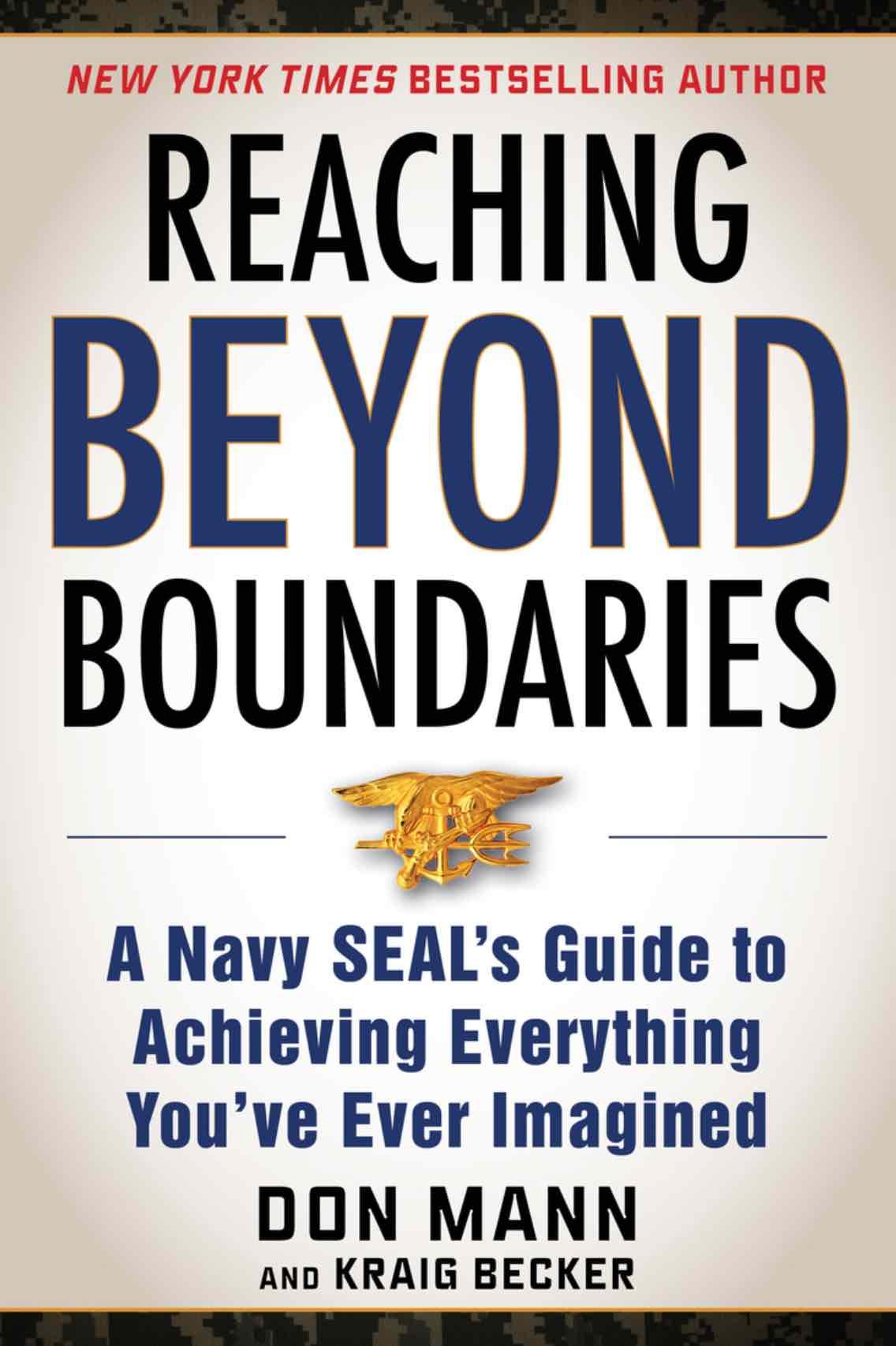 This excerpt is taken from “Reaching Beyond Boundaries: A Navy SEAL’s Guide to Achieving Everything You’ve Ever Imagined” by Don Mann and Kraig Becker.
To read other articles of this book, click here.
To buy this book, click here.
This excerpt is taken from “Reaching Beyond Boundaries: A Navy SEAL’s Guide to Achieving Everything You’ve Ever Imagined” by Don Mann and Kraig Becker.
To read other articles of this book, click here.
To buy this book, click here.
The Epoch Times copyright © 2023. The views and opinions expressed are those of the authors. They are meant for general informational purposes only and should not be construed or interpreted as a recommendation or solicitation. The Epoch Times does not provide investment, tax, legal, financial planning, estate planning, or any other personal finance advice. The Epoch Times holds no liability for the accuracy or timeliness of the information provided.

